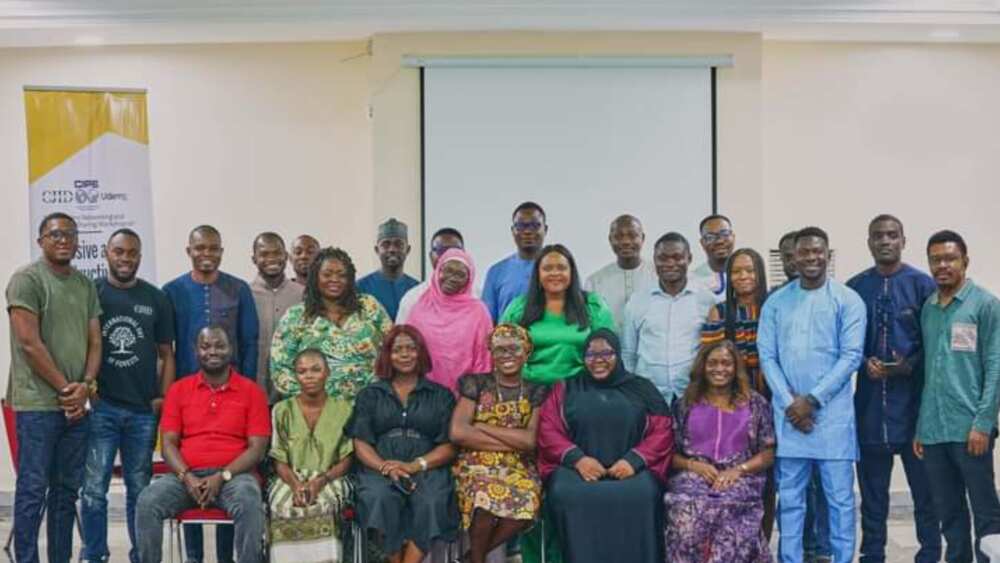CJID/CIPE Train Journalists on How to Track Foreign Financial Flows in Nigeria
The Centre for Journalism and Innovation Development (CJID) in collaboration with the Center for International Private Enterprise (CIPE) trained journalists on how to track constructive and corrosive capital
PAY ATTENTION: Click “See First” under the “Following” tab to see Legit.ng News on your Facebook News Feed!
A group of journalists from various media outlets in Nigeria have been trained on how to track and report on constructive and corrosive capital in the country.
The training, which was organised by the Centre for Journalism and Innovation Development (CJID) in partnership with the Center for International Private Enterprise (CIPE), took place in Abuja from May 10 to 12.

Source: Twitter
Constructive capital can be defined as foreign investments that promote sustainable development and good governance, while corrosive capital refers to foreign investments that undermines the aforementioned.
The aim of the training was to equip journalists with the skills and knowledge to monitor and analyse the impact of foreign financial flows on Nigeria’s economy, society and environment.
PAY ATTENTION: Join Legit.ng Telegram channel! Never miss important updates!
The participants learned about the concepts and indicators of constructive and corrosive capital, the sources and destinations of foreign financial flows in Nigeria, the fiscal issues and challenges facing the country, and how to mainstream gender into their reporting.
They also learned about the Belt and Road Initiative (BRI) monitor, a tool developed by several organizations to track the transparency and accountability of major infrastructure projects funded by China in Southeast Asia and the Pacific.
The executive director of CJID, Tobi Oluwatola, said the training was timely and relevant, given the increasing presence and influence of foreign actors in Nigeria.
He said: “This workshop will create a platform for journalists, civil society organisations, government and seasoned experts in the sector to exchange knowledge and experiences, and network with other like-minded professionals.”
One of the participants, Daniel Adaji, a journalist at Insight Newspaper, said the training has deepened his understanding of the terms.
“As a journalist, reporting on the financial flows into the country could be demanding as it requires technical know-how. However, this workshop has deepened my understanding of corrosive and constructive capital,” he said.
Some of the speakers at the training included Akintunde Babatunde, Mboho Eno, Ijeoma Okereke-Adagba, Lola Adekanye, Hassan Adebayo, Joshua Olufemi and Busola Ajibola.
The participants are expected to receive grants to work on stories revolving around the project.
Nigeria’s public debt rises to N46.25 trillion, Lagos leads list of 10 most indebted states
Meanwhile, Legit.ng previously reported that the Debt Management Office has revealed that Nigeria’s total public debt stock was N46.25 trillion as of the end of December 2022.
This is a 14.46% increase compared to N39.56 trillion (95.77 billion USD) recorded on December 31, 2021.
The DMO made this public in a statement issued on Thursday, March 30, 2023, published on its website.
Source: Legit.ng


